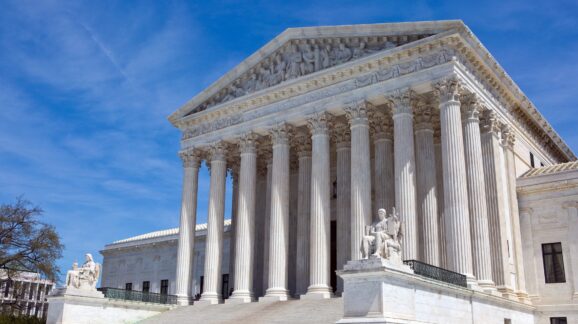A big win for representative government
Federal courts will no longer favor bureaucrats over the public, thanks to a June 28 U.S. Supreme Court decision.
In a 6-3 opinion in Loper Bright v. Romando, the Court overruled its own 1984 case Chevron v. NRDC that created what is known as the Chevron doctrine. As a result of that doctrine, whenever there were ambiguities in statutes that agencies administer, courts deferred to federal agencies’ interpretations of those statutes.
For 40 years, it didn’t matter if an agency’s interpretation was the best interpretation or even a good interpretation of ambiguous statutes. It didn’t matter if an individual or business had a much better interpretation. The agency would win under this doctrine so long as it had what a court deemed a reasonable interpretation.
That was a gross injustice to anyone losing in court to a federal agency under these circumstances. The system was gamed in favor of agencies.
If the Chevron doctrine sounds like it doesn’t make sense, that’s because it doesn’t. Under the U.S. Constitution, the job of judges is to interpret laws when presented with a lawsuit. It isn’t the job of agencies. Agencies are supposed to have expertise when it comes to their policy areas. But Chevron wasn’t just giving deference to agencies regarding genuine policy decisions but also for purely legal questions.
It turns out Congress a long time ago already thought of the role of courts when reviewing regulations. The Administrative Procedure Act of 1946 (Section 706) makes it perfectly clear that courts are required to interpret the statutes that authorize agency rules. The APA expressly says “the reviewing court shall decide all relevant questions of law, interpret constitutional and statutory provisions…” The Chevron doctrine completely ignored this APA language.
Critics of the June 28 Loper opinion have already claimed that judges will now have to make complex decisions that are within the expertise of the agencies. Yet they fail to acknowledge that under Chevron, federal agencies have been making the complex decisions within the expertise of the courts.
It’s also a fallacy that somehow courts will now need to make all kinds of policy decisions. Resolving ambiguities is a legal matter, and judges are supposed to do so without regard for their own policy preferences. Judges can focus on the legal questions while still respecting the authority that agencies have been given by Congress and the views of the agencies.
Read the full article at Center Square.
